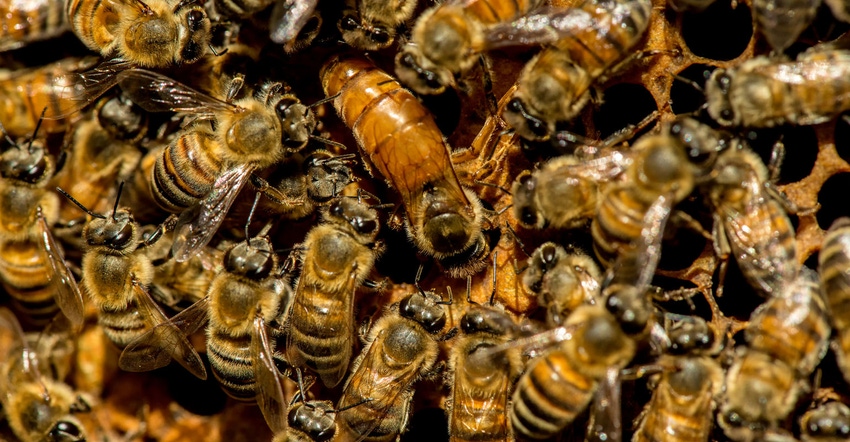May 17, 2018

The use of the neonicotinoid class of insecticides has been a boon to agriculture, helping farmers boost yields in several crops from corn to soybeans, sugarbeets to canola. There has been rising concern in some circles that this class of products is a key culprit regarding rising concern over global bee health, and a major cause of colony problems that have plagued some regions.
In 2013, the European Commission issued a partial ban on the insecticides which meant they could not be used on maize, rapeseed and some spring cereals, but could still be used for crops such as sugarbeet. The partial ban impacted the three active ingredients - clothianidin, imidacloprid and thiamethoxam - and their use, which was challenged in the European Court of Justice by the product makers including Syngenta and Bayer.
Last month, the EU upped the ante with a ban on use of the products outdoors, pushing the insecticides into greenhouse use only.
The court ruled today (May 17) in favor of the EU original limits set in 2013. That ruling could support the tighter "greenhouse only" use decision made last month. In its ruling the European Court of Justice said that the EU had correctly applied the precautionary principle, which allows regulators to restrict a product's use even when conclusive evidence is lacking.
Syngenta issued a statement in response to the ruling saying the court's decision was "disappointing and unfortunate." The company's statement says Syngenta stands by "our past decision to challenge the European Commission's decision-making process concerning our thiamethoxam technology, as it relied on a hypothetical risk to implement partial restrictions on neonicotinoid chemistries, outside legally approved regulation."
The company noted that having a predictable regulatory framework and consistent application by regulators enables companies to innovate and "thus support European farmers and ultimately European consumers with locally produced, safe and affordable food."
Syngenta also raised concern about the handling of this specific case and the approach the EC was taking to regulating technology in agriculture. In the statement the company said: "The evolution of modern farming technology and responsible, science-based environmental management is imperative if we are to sustainably produce affordable, safe and local food to feed more than 9 billion people by 2050 and take care of our planet."
Bayer also issued a terse statement after the ruling noting the company will assess the verdict's consequences and its potential legal options. In the statement the company said: "Bayer decided to pursue legal action to gain clarity on the legal basis of the Commission's decision which - in Bayer's opinion - was uncertain. Bayer remains convinced of the safety of its products when applied in accordance with label instructions."
Bayer and Syngenta have warned that banning use of the neonic technology would lead farmers to resort to older chemistries and more sprays. They also argued that the science used in the finding was based on high doses of neonics in lab tests, versus real-world field use information.
Another insecticide
Fipronil, another product under review by the EU, was also taken to court by its maker BASF. In that case, the insecticide had been subjected to greater restrictions. In today's announcement, the ECJ annulled those restrictions. In that ruling the court said that the EC had not done an adequate job of assessing the impact of the product.
Source: Syngenta, wire reports
You May Also Like




